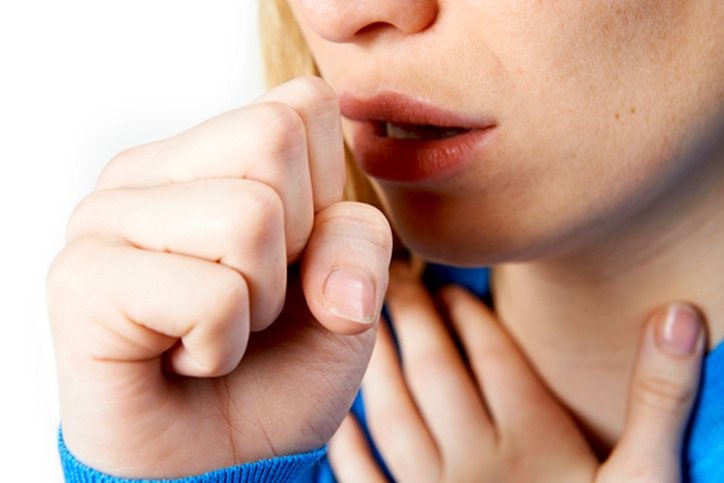
Pertussis: How to recognise whooping cough and identify the best treatment
Pertussis, also known as ‘whooping cough’ is due to an infection of the respiratory tract and is caused by the bacterium Bordetella pertussis
Whooping cough is a highly contagious disease, with a generally benign onset, mainly, though not exclusively, affecting the 0-5 year age group and striking mainly in the summer-autumn season.
With an incubation period of about 10 days, the disease usually lasts between 6 and 10 weeks.
Whooping cough (Pertussis) causes different symptoms according to its different stages:
Catarrhal stage: in the initial stage of the disease, usually the first two weeks, the symptoms that occur are similar to those of a cold:
- reddening of the eyes;
- lacrimation;
- sore throat;
- mild cough;
- possible fever.
Paroxysmal stage: only in a second stage, lasting approximately 6 weeks, does the symptomatology become more specific:
- paroxysmal, intense and uncontrollable cough;
- breathing difficulties;
- inspiratory scream (typical sound emitted to take in air)
- expulsion of very thick, viscous phlegm;
- possible gagging.
In very young children, the following may appear
- absence of breathing
- blue colouring;
- choking.
Convalescence: after the paroxysmal phase, the convalescence phase begins, characterised by the alleviation of symptoms and improvement in general condition.
Diagnosis of pertussis
The signs and symptoms of whooping cough are such that it is often difficult to diagnose: in fact, these are non-specific symptoms, very similar, as anticipated, to those of other common respiratory diseases, such as colds, influenza or bronchitis.
It is the inspiratory scream, typical of the paroxysmal phase, that facilitates recognition.
Several investigations can be performed:
- culture examination of the phlegm to search for the presence of pertussis bacteria
- blood tests for specific antibodies, produced by the immune system following contact with the bacterium;
- polymerase chain reaction (PCR): a sophisticated test, always performed on the patient’s secretions.
Less specific for diagnosis, on the other hand, are common blood tests and a chest X-ray, useful for detecting whether pertussis has possibly caused pneumonia.
How to treat whooping cough
To treat whooping cough, shorten the time of contagion and its duration, specialists resort to antibiotics, such as erythromycin.
To relieve symptoms, cough sedatives and anti-spasm drugs may also be prescribed.
If infants and children show severe symptoms, hospitalisation may be necessary.
In addition to antibiotics, medication and hospitalisation, where necessary, it is advisable to take a few precautions:
- drink plenty of fluids to avoid dehydration due to frequent breathing;
- eat small, frequent meals, to avoid vomiting after the cough;
- cover your mouth, wash your hands often and wear a mask in the presence of other people to prevent contagion.
Complications of whooping cough
While pertussis can be severe in infants and infants, adolescents and adults often recover without problems.
Complications may be due to excessive coughing, sometimes resulting in:
- cracked ribs;
- abdominal hernias;
- ruptured blood vessels in the skin or white of the eyes;
- nosebleeds.
More serious complications are:
- otitis;
- bronchitis;
- pneumonia;
- neurological complications, such as seizures and encephalitis.
The vaccine
The best way to prevent whooping cough remains, however, vaccination.
The latter, let us remember, is compulsory and carried out in infants together with the hexavalent virus, with a subsequent booster in adolescence.
Read Also:
Emergency Live Even More…Live: Download The New Free App Of Your Newspaper For IOS And Android
Oesophagitis: Symptoms, Diagnosis And Treatment
Asthma, The Disease That Takes Your Breath Away
Gastroesophageal Reflux: Causes, Symptoms, Tests For Diagnosis And Treatment
Global Strategy For Asthma Management And Prevention
Paediatrics: ‘Asthma May Have ‘Protective’ Action Against Covid’
Esophageal Achalasia, The Treatment Is Endoscopic
Oesophageal Achalasia: Symptoms And How To Treat It
Eosinophilic Oesophagitis: What It Is, What The Symptoms Are And How To Treat It
Gastroesophageal Reflux: Causes, Symptoms, Tests For Diagnosis And Treatment
Symptoms And Remedies Of A Gastro-Oesophageal Reflux Cough


